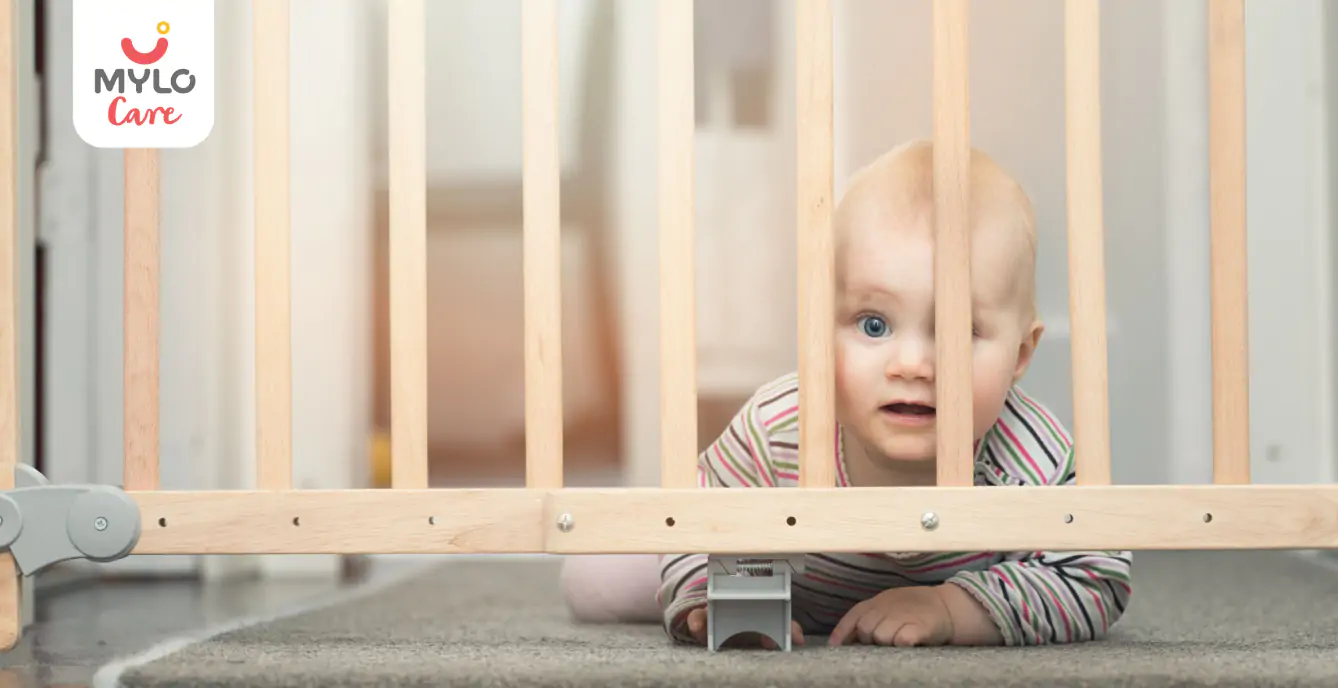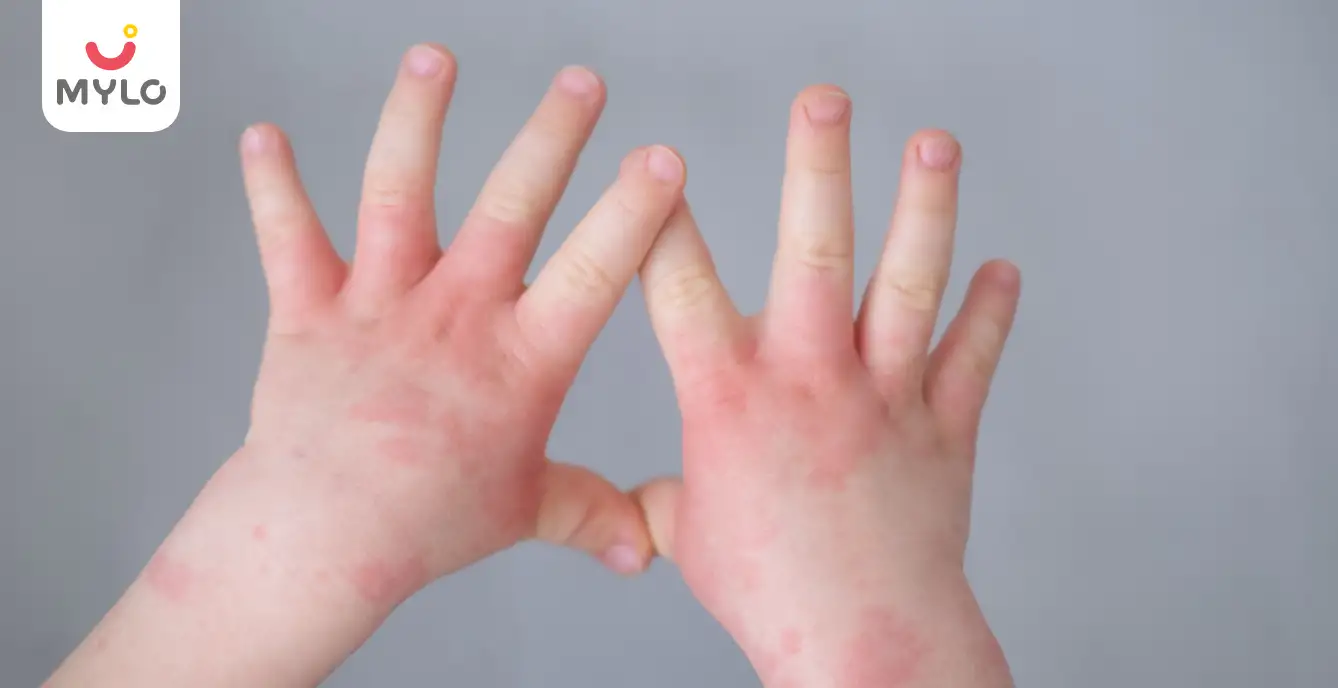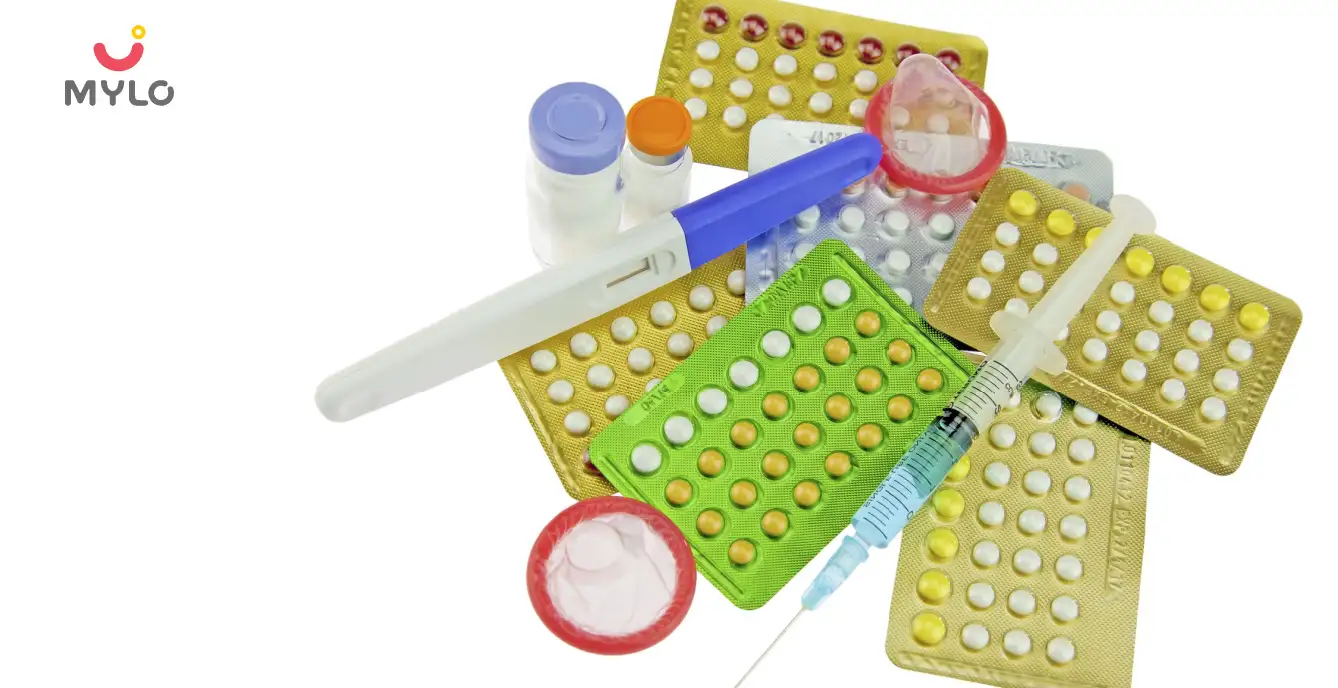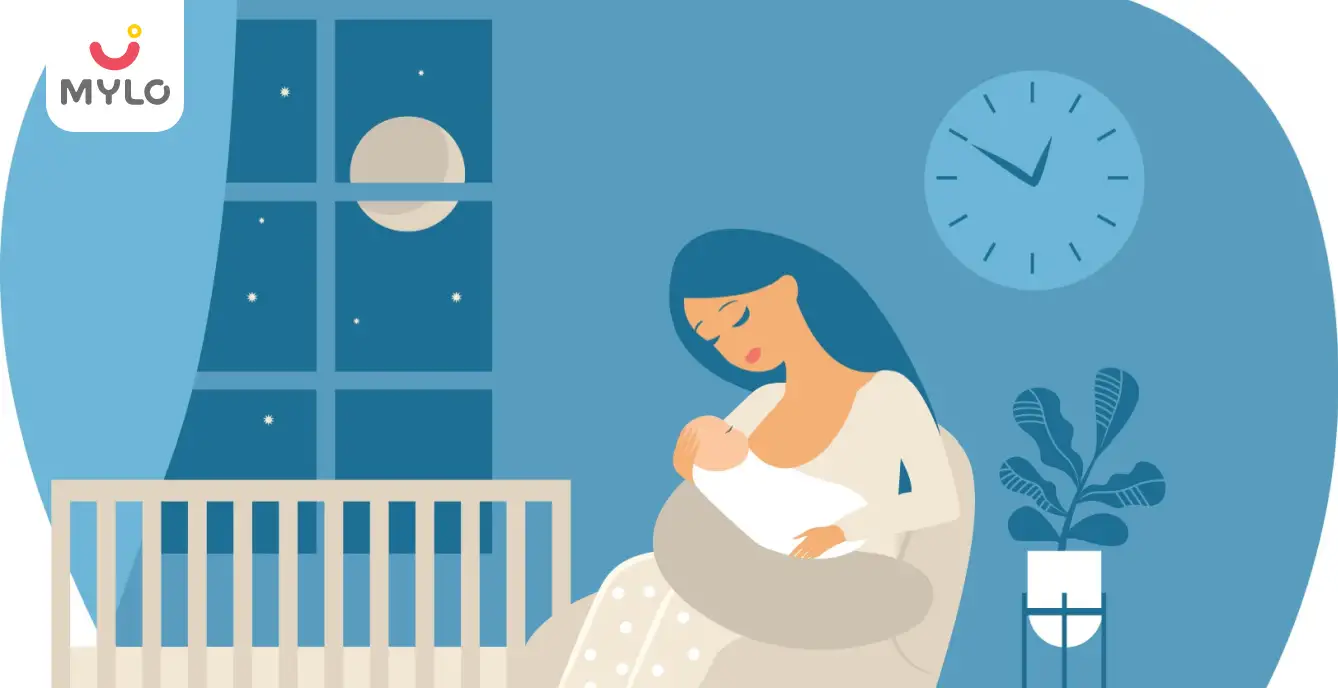Get MYLO APP
Install Mylo app Now and unlock new features
💰 Extra 20% OFF on 1st purchase
🥗 Get Diet Chart for your little one
📈 Track your baby’s growth
👩⚕️ Get daily tips

OR


Article Continues below advertisement
- Home

- After How Many Weeks IVF Pregnancy Is Safe: Understanding The Ideal Timeline
In this Article
- What is IVF Pregnancy?
- How to Calculate Pregnancy Weeks After IVF?
- Are IVF Pregnancies High Risk?
- What are the Factors That Determine the Safety of an IVF Pregnancy?
- 1. Age of the mother
- 2. Underlying medical conditions
- 3. Quality of the embryos
- 4. Number of embryos transferred
- After How Many Weeks IVF Pregnancy Is Safe?
- Precautions After IVF Pregnancy You Should Follow
- 1. Following the prescribed prenatal care
- 2. Avoiding harmful substances
- 3. Managing stress
- 4. Monitoring fetal movements
- 5. Healthy lifestyle choices
- Final Thoughts
- References
In Vitro Fertilization (IVF)
 1037
1037After How Many Weeks IVF Pregnancy Is Safe: Understanding The Ideal Timeline
Updated on 17 July 2023
For couples who are struggling with infertility, in vitro fertilization (IVF) can be a beacon of hope. The process of IVF is complex and involves a significant investment of time, energy, and money. But when it results in a successful pregnancy, the joy and relief that come with it are immeasurable. But after how many weeks IVF pregnancy is safe?
There are risks and uncertainties involved, and couples often wonder how long they need to wait before they can breathe a sigh of relief. In this article, we will explore the ideal timeline for IVF pregnancies, the factors that determine how long couples should wait before they can feel confident that their pregnancy is safe and precautions after IVF pregnancy.
What is IVF Pregnancy?
In vitro fertilization (IVF) has become a popular fertility treatment for couples struggling to conceive naturally. IVF pregnancy refers to a pregnancy that occurs as a result of this assisted reproductive technology. During IVF, mature eggs are retrieved from the woman's ovaries and fertilized with sperm in a laboratory. The fertilized embryos are then transferred back into the woman's uterus, where they have the potential to implant and develop into a pregnancy.
Article continues below advertisment
You may also like: IVF Process Step by Step Timeline: What to Expect During Your Fertility Journey
How to Calculate Pregnancy Weeks After IVF?
Calculating pregnancy weeks after IVF is slightly different from calculating natural conception. In a natural pregnancy, the counting begins from the first day of the woman's last menstrual period (LMP). However, in IVF pregnancies, the counting starts from the day of embryo transfer. It is important to note that the age of the embryos at the time of transfer also needs to be taken into account.
To calculate the weeks of pregnancy after IVF, the day of embryo transfer is considered as day zero. From this day, each passing week is counted as one week of pregnancy.
For example, if the embryo transfer was done on January 1st and the current date is January 15th, it would be considered 2 weeks into the pregnancy. It is important to note that this calculation is an estimate, as the actual conception date may vary slightly due to the timing of the embryo transfer.
You may also like: Sleeping Position After IVF & Other Precautions That Can Boost Your Chances of Success
Article continues below advertisment
Are IVF Pregnancies High Risk?
IVF pregnancies, like any other pregnancies, can come with certain risks and complications. However, it is important to note that not all IVF pregnancies are automatically considered high risk. The risk level depends on various factors such as the age of the mother, the quality of the embryos, the presence of any underlying medical conditions, and the number of embryos transferred.
Multiple pregnancies, where more than one embryo implants and develops, are more common in IVF pregnancies. This can increase the risk of complications such as preterm birth, low birth weight, and gestational diabetes. However, advancements in IVF techniques and medical monitoring have significantly reduced the risks associated with IVF pregnancies. Regular prenatal care and close monitoring by healthcare professionals can help mitigate these risks.
What are the Factors That Determine the Safety of an IVF Pregnancy?
In order to understand after how many weeks IVF pregnancy is safe, it’s important to understand the factors that determine its safety. The safety of an IVF pregnancy depends on several factors that are assessed by healthcare professionals. These factors include:
1. Age of the mother
Advanced maternal age (generally considered to be 35 years and older) is associated with an increased risk of pregnancy complications, including chromosomal abnormalities and miscarriage.
2. Underlying medical conditions
Certain medical conditions such as high blood pressure, diabetes, or autoimmune disorders can also impact the safety of an IVF pregnancy.
Article continues below advertisment
3. Quality of the embryos
The quality of the embryos plays a crucial role in determining the safety of an IVF pregnancy. Embryos with a higher grade and better development have a higher chance of implantation and a lower risk of miscarriage.
4. Number of embryos transferred
Lastly, the number of embryos transferred can affect the safety of the pregnancy. Transferring multiple embryos increases the chances of a successful pregnancy but also raises the risk of complications associated with multiple pregnancies.
You may also like: Twin Pregnancy: Signs, Types & Risks
After How Many Weeks IVF Pregnancy Is Safe?
The safety of an IVF pregnancy is a concern for many couples undergoing fertility treatments. While there is no definitive answer to the exact number of weeks after which IVF pregnancy is considered safe, there are certain milestones that provide reassurance.
The first milestone is the completion of the first trimester, which marks the end of the most critical period of fetal development. By the end of the first trimester, the risk of miscarriage significantly decreases. The second milestone is reaching the viability stage, usually around 24 weeks of pregnancy. At this stage, the baby has a chance of survival outside the womb with medical assistance.
Article continues below advertisment
It is important to note that the safety of an IVF pregnancy is not solely determined by the number of weeks but also by the overall health of both the mother and the baby. Regular prenatal check-ups, monitoring of fetal growth, and open communication with healthcare professionals are essential to ensure the safety and well-being of an IVF pregnancy.
Precautions After IVF Pregnancy You Should Follow
After a successful IVF pregnancy, it is important to take certain precautions to ensure the health and well-being of both the mother and the baby. These precautions include:
1. Following the prescribed prenatal care
Regular visits to the healthcare provider, taking recommended prenatal vitamins, and adhering to the advised diet and exercise regimen.
2. Avoiding harmful substances
It is crucial to avoid smoking, alcohol, and illicit drugs, as they can pose serious risks to the developing baby.
3. Managing stress
IVF pregnancy can sometimes be accompanied by added stress and anxiety. Engaging in relaxation techniques, seeking support from loved ones, and considering counseling can help manage stress levels.
Article continues below advertisment
4. Monitoring fetal movements
Observing and noting the baby's movements regularly can help identify any changes or concerns and allow for timely medical intervention.
5. Healthy lifestyle choices
Maintaining a balanced diet, engaging in regular exercise (as advised by the healthcare provider), and avoiding harmful substances such as alcohol and tobacco can promote a healthy pregnancy.
Final Thoughts
IVF pregnancy is a viable option for couples struggling with infertility. While these pregnancies may carry higher risks compared to natural pregnancies, taking necessary precautions and closely monitoring the pregnancy can minimize these risks. Remember, every pregnancy is unique, and after how many weeks IVF pregnancy is safe can depend on individual circumstances. By understanding the ideal timeline and following the recommended precautions after IVF pregnancy, couples can increase their chances of a successful pregnancy and the joy of welcoming a healthy baby into their lives.
References
1. Choe J, Shanks AL. In Vitro Fertilization. (2022). In: StatPearls [Internet]. Treasure Island (FL): StatPearls Publishing
2. Zargar M, Dehdashti S, Najafian M, Choghakabodi PM. (2021). Pregnancy outcomes following in vitro fertilization using fresh or frozen embryo transfer. JBRA Assist Reprod.
Article continues below advertisment



Written by
Anupama Chadha
Anupama Chadha, born and raised in Delhi is a content writer who has written extensively for industries such as HR, Healthcare, Finance, Retail and Tech.
Read MoreGet baby's diet chart, and growth tips

Related Articles
Related Questions
Hello frnds..still no pain...doctor said head fix nhi hua hai..bt vagina me pain hai aur back pain bhi... anyone having same issues??
725 views
Kon kon c chije aisi hai jo pregnancy mei gas acidity jalan karti hain... Koi btayega plz bcz mujhe aksar khane ke baad hi samagh aata hai ki is chij se gas acidity jalan ho gyi hai. Please share your knowledge
749 views
I am 13 week pregnancy. Anyone having Storione-xt tablet. It better to have morning or night ???
737 views
Hlo to be moms....i hv a query...in my 9.5 wk i feel body joint pain like in ankle, knee, wrist, shoulder, toes....pain intensity is high...i cnt sleep....what should i do pls help....cn i cosult my doc.
752 views
Influenza and boostrix injection kisiko laga hai kya 8 month pregnancy me and q lagta hai ye plz reply me
764 views
RECENTLY PUBLISHED ARTICLES
our most recent articles

Exploring the Senses: 9 Incredible Benefits of Sensory Play for Your Child's Development
(3,273 Views)

Childproofing
The Ultimate Guide to Childproofing Your Home
(589 Views)

Books
Start Their Love for Reading Early: The Best Books for Baby's First Library
(2,385 Views)

Illnesses & Infections
CMPA (Cow's Milk Protein Allergy): Identifying Symptoms and Understanding Treatment
(4,842 Views)

Contraceptive
Birth Control Options While Breastfeeding: Balancing Parenthood and Contraception
(180 Views)

Periods
Period During Breastfeeding What Every New Mother Should Know
(485 Views)
- Role of Stories and Rhymes in Your Baby’s Brain Development
- Intracytoplasmic Sperm Injection (ICSI) How It Can Help Treat Male Infertility
- Baby Sleeping While Breastfeeding: Understanding the Causes and Solutions
- Lump in Breast During Breastfeeding How to Identify, Treat, and Prevent Lump Formation
- Understanding Down Syndrome: A Comprehensive Guide for Parents
- No Breast Milk After Delivery: What to Do & What are the Factors Responsible
- Lactation Failure: A Comprehensive Guide to Understanding the Causes and Solutions
- Breast Pain During Pregnancy: What to Expect and How to Find Relief
- Baby Spit Up: The Ultimate Guide to Causes, Prevention, and Management
- Unexplained Infertility: Breaking Down the Factors and Finding Solutions
- Mulethi: Unraveling the Therapeutic Potential of Licorice Root for Your Overall Health
- 5 Steps to a Healthy Lifestyle: The Blueprint for Your Wellness Journey
- Chandraprabha Vati: How This Potent Ayurvedic Formulation Can Boost Your Health
- Trichomoniasis: Meaning, Symptoms, Causes and Risks


AWARDS AND RECOGNITION
Mylo wins Forbes D2C Disruptor award
Mylo wins The Economic Times Promising Brands 2022
AS SEEN IN
















At Mylo, we help young parents raise happy and healthy families with our innovative new-age solutions:
- Mylo Care: Effective and science-backed personal care and wellness solutions for a joyful you.
- Mylo Baby: Science-backed, gentle and effective personal care & hygiene range for your little one.
- Mylo Community: Trusted and empathetic community of 10mn+ parents and experts.
Product Categories
baby carrier | baby soap | baby wipes | stretch marks cream | baby cream | baby shampoo | baby massage oil | baby hair oil | stretch marks oil | baby body wash | baby powder | baby lotion | diaper rash cream | newborn diapers | teether | baby kajal | baby diapers | cloth diapers |







